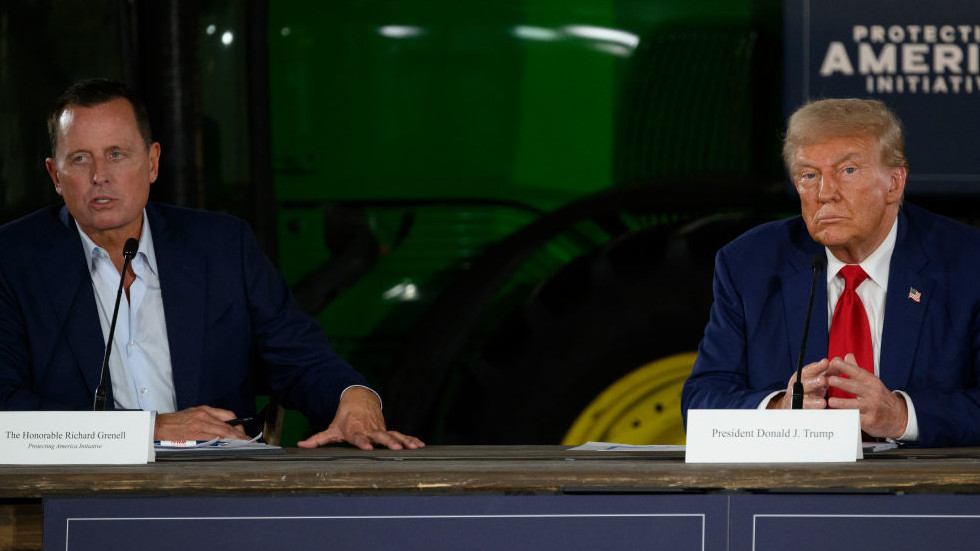In the lead-up to his inauguration, President-elect Donald Trump is reportedly considering three candidates for the crucial role of secretary of state, according to insights from Politico. Among the names being discussed are Florida Senator Marco Rubio, Tennessee Senator Bill Hagerty, and Richard Grenell, the former acting director of national intelligence. This revelation emerged from a meeting attended by Trump’s former national security adviser, Robert O’Brien, who shared that Trump viewed these individuals as strong contenders to fill the pivotal diplomatic position. Each potential candidate brings a distinct foreign policy perspective and experience, suggesting that Trump’s approach to international relations may be shaped significantly by whichever individual he ultimately selects.
Marco Rubio has long established himself as a foreign policy hawk, advocating for militaristic support toward Ukraine in its ongoing conflict with Russia. However, contrary to his previous stance, Rubio recently voted against a substantial $95 billion foreign aid package that included extensive financial assistance for Ukraine. In a marked shift from his earlier position, he characterized the conflict as having reached a “stalemate” and articulated the need for a resolution. This contradictory behavior raises questions about his future approach as secretary of state and whether he would maintain a supportive stance toward Ukraine during his tenure.
Bill Hagerty, in contrast, has experience in foreign relations as Trump’s former ambassador to Japan. Similar to Rubio, he opposed the foreign aid bill, expressing concerns about the lack of security at the US-Mexico border. Hagerty’s hardline stance extends beyond Ukraine, as he has been vocal about the threat posed by China, endorsing economic sanctions against Chinese companies involved in telecommunications and electronics. His views underscore an emphasis on strengthening the U.S. position in the Indo-Pacific region while maintaining a robust foreign policy that prioritizes American interests.
Richard Grenell emerges as a notable figure due to his close relationship with Trump, having previously served as the ambassador to Germany and briefly as acting director of national intelligence. His proximity to Trump may provide him with added influence in shaping foreign policy. Grenell’s past actions show support for facilitating a quick resolution to the Russia-Ukraine crisis, even if that means potentially compelling Ukraine to make significant concessions. This willingness to prioritize expedience in diplomatic relations signals a potentially controversial approach that could have wide-reaching implications on U.S. foreign policy and its allies.
As the Trump transition team begins its cabinet selection process, they have taken steps to vet potential hires and sift through resumes for key roles. However, Trump has maintained silence regarding the specifics of his cabinet composition, while campaign representatives have refrained from addressing inquiries about the selection process or any agreements with government agencies like the General Services Administration (GSA). This reticence in communication reflects a strategic choice, allowing for flexibility in decision-making amid ongoing discussions regarding the makeup of the administration.
Overall, the considerations surrounding the secretary of state role highlight the complexities of Trump’s foreign policy approach, intertwined with national security concerns and internal party politics. The selection of Rubio, Hagerty, or Grenell will inevitably shape the administration’s diplomatic relations, especially in the context of ongoing global tensions, including those involving Russia and China. With foreign policy implications looming large on the horizon, the manner in which Trump brokers his relationships with these candidates may provide a window into the governing philosophy he will adopt as he transitions from president-elect to president.

